African Life.
Hi my fellow blurtians and good morning. Today, we are going to talk about life in Africa and some of this African resources, what makes Africa special. We will also talk about how we struggle in Africa, we'll talk about some beautiful cities in Africa and I hope you guys enjoy it's here. Thank you.
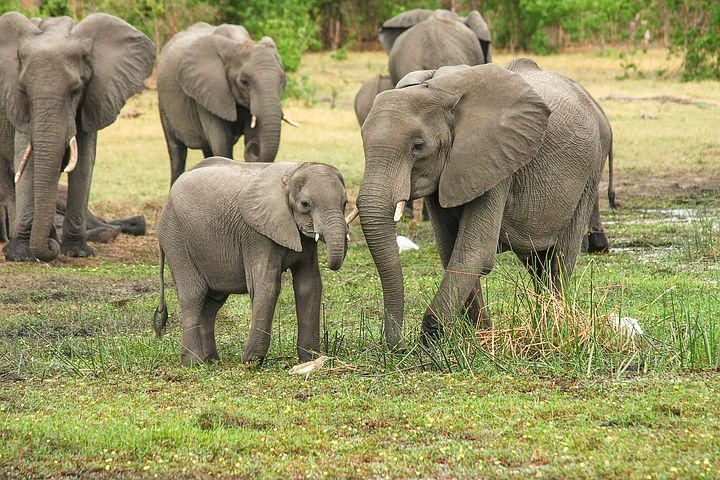
source: pixabay
Talking about Africa is something I've always wanted to do and thank God today I have the chance to relate to you all about my continent. We as African have ways of surviving, we have different means of living and the most beautiful part of it all is the resources we have, the wildlife in Africa, our population, our skills, diversity and also history.
Africa is a continent with a rich cultural heritage and diverse natural resources. The people of Africa are known for their hospitality, warm smiles, and vibrant music and dance. From the savannas of the Serengeti to the beaches of the Seychelles, Africa is blessed with breathtaking landscapes that draw visitors from all over the world.
In addition to its natural beauty, Africa is home to a wealth of mineral resources that are vital to the global economy. These resources include gold, diamonds, copper, oil, and many others. The mining industry plays a significant role in the economies of many African nations, providing jobs and driving economic growth.
However, it is important to note that the exploitation of these resources has also led to conflict and environmental degradation in some parts of the continent. Therefore, it is crucial that these resources are managed in a sustainable and responsible manner.
Despite its challenges, Africa remains a beautiful and unique continent, full of potential and promise. Its people and resources continue to inspire and captivate the world, making it a special place indeed.
Now before we go any further, let's talk about some major cities in Africa and where they are located..
Some major cities in Africa include:
- Cairo, Egypt
- Lagos, Nigeria
- The beautiful city of Kinshasa, DR Congo
- Johannesburg, South Africa
- Nairobi, Kenya
- Addis Ababa, Ethiopia
- Casablanca, Morocco
- Algiers, Algeria
- Tunis, Tunisia
- Cape Town, South Africa
These are just a few examples, as Africa is a large and diverse continent with many cities of different sizes and significance.
Now, having mention all these major cities in Africa, I would like to talk brief about one of the major cities which is in my country and which is Lagos, Nigeria.
Lagos, Nigeria.
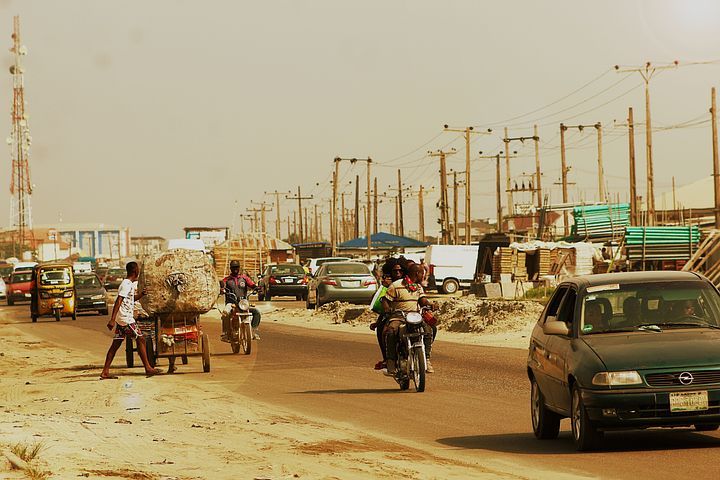
source:pixabay
Lagos is a city and a state in southwestern Nigeria, located on the Atlantic coast. It has a long and complex history, dating back to the pre-colonial era when it was a center of the Yoruba Kingdom of Lagos. In the 19th century, it became an important center of trade and commerce for European merchants.
Today, Lagos is one of the largest and fastest-growing cities in Africa, with a population estimated to be around 20 million people. The city is a major economic hub, with a diverse economy that includes trade, finance, manufacturing, and lots of other services. However, Lagos also faces significant challenges, including poverty and overcrowding.
Struggles
As Africans, livelihood struggles is something we can't escape. And here in Lagos are numerous, with many residents facing difficulties accessing basic necessities such as clean water, healthcare, and education.
Despite these challenges, Lagos is a vibrant and dynamic city with a rich cultural heritage and a resilient population. The city is home to a lot of people from across Nigeria and the wider African continent, and is known for its lively music and arts scene, as well as its rich traditions. Music!!!!!! I mean Lagos is home to African music. The Afrobeats♥️
Major ethnic groups in Africa
Now that we're done with some brief information on Lagos state Nigeria, let's look into some major ethnic groups in Africa
Hausa-Fulani - Found primarily in Nigeria, Niger, and Cameroon. The Hausa-Fulani people are one of the largest ethnic groups in Africa.
Yoruba - Located primarily in Nigeria and Benin, the Yoruba people have a rich cultural heritage that includes art, music, and religion.
Zulu - The largest ethnic group in South Africa, the Zulu people have a long and complex history, and are known for their military prowess and cultural traditions.
Amhara - Found primarily in Ethiopia, the Amhara people are the country's second-largest ethnic group, and have played a significant role in Ethiopia's political and cultural history.
Berber - Spread across North Africa, the Berber people have a long and rich history, and are known for their unique cultural traditions and languages.
These are just a few examples of the many different ethnic groups in Africa, which together make up the rich and diverse nature of the continent's cultural heritage.
Wow!!!! I hope you're all enjoying your ride here, and now let's talk about the biggest country in Africa and its population
About the biggest country in Africa and it's population
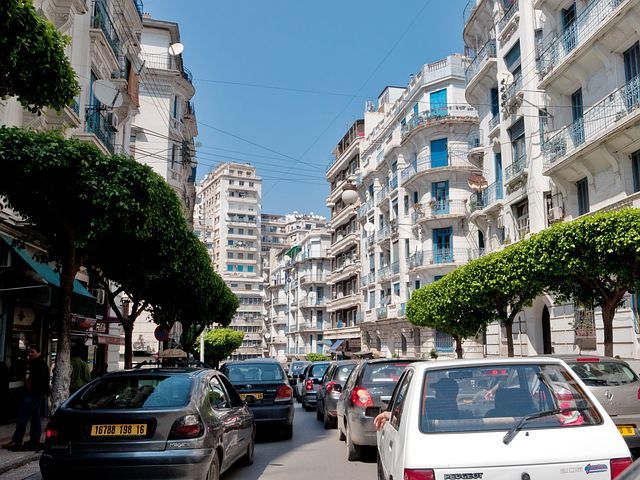
source: pixabay
The biggest country in Africa by land area is Algeria, which is located in North Africa and covers an area of approximately 2.38 million square kilometers (919,595 square miles). The country has a diverse landscape that includes the Sahara desert, mountain ranges, and a Mediterranean coastline.
As of 2022, Algeria's population is estimated to be around 50 million people, making it one of the most populous countries in Africa. The country is home to a range of different ethnic groups, with Arabic being the official language and Islam the dominant religion. Algeria is known for its rich history and culture, and has made significant contributions to fields such as literature, art, and music.
It's very very good and educative to know about the biggest country in the African continent, how they live their lives, their major languages and some of their contributions to the continent. Now let's talk about the most populous country in Africa.
About the Most populated country in Africa and it's population
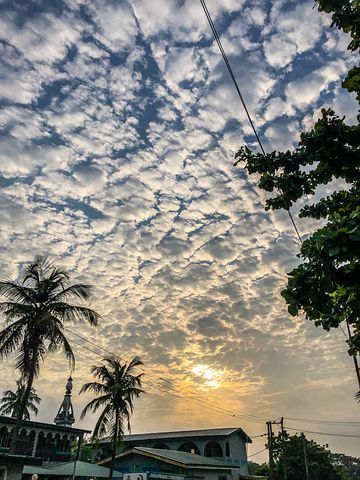
source: pixabay
The most populated country in Africa is Nigeria, which is located in West Africa. As of 2021, Nigeria's population is estimated to be around 220+ million people, making it the seventh most populous country in the world.
Nigeria is a diverse country with over 750 ethnic groups, each with its own culture and language. The official language is English, but many Nigerians also speak one or more of the country's indigenous languages. Nigeria is a major economic power in Africa, with a large and rapidly growing economy driven by the oil and gas industry, agriculture, and other sectors.
However, the country also faces significant challenges, including poverty, corruption, and political instability. This is something my country people don't always wanna talk about but it's the real truth.😢
Most developed country in Africa
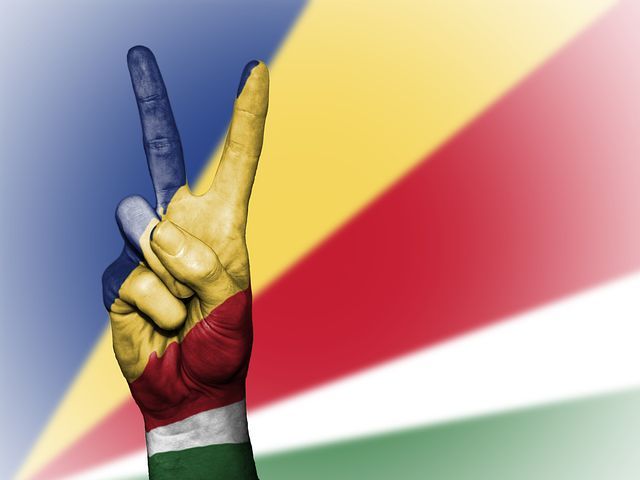
source: pixabay
We have talked about the largest country in Africa, the most populated country in Africa, and now, let's talk about the most developed country in Africa.
Talking about the most developed country in Africa can be subjected to different opinions as there are different ways to measure development, including economic, social, and political indicators.
However, according to the United Nations Human Development Index (HDI), which measures a country's human development based on factors such as life expectancy, education, and income, the most developed country in Africa is Seychelles.
As of 2022, Seychelles has an HDI score of 0.881, which is classified as "very high human development." Seychelles is a small island country located in the Indian Ocean, east of mainland Africa. It has a relatively small population and a strong economy based on tourism and fishing.
Other countries in Africa that rank highly on the HDI include Mauritius, Algeria, Tunisia, and Botswana. However, it's important to note that many countries in Africa still face significant development challenges, and progress towards achieving greater development is ongoing
African Wildlife Conservation.
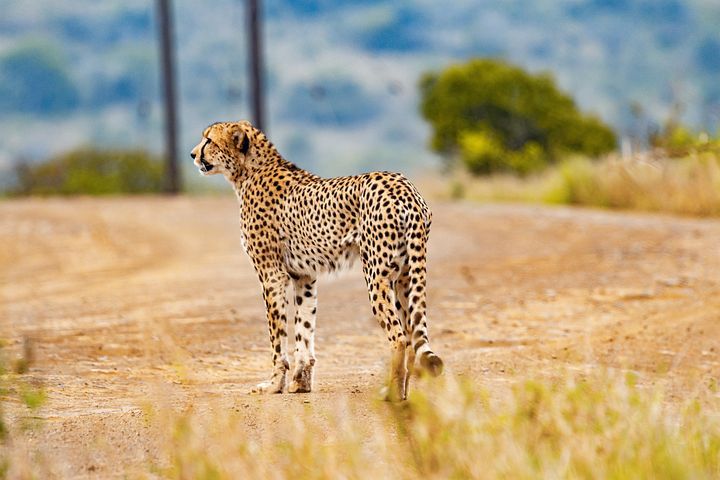
source: pixabay
Now let's talk brief about the African wildlife conservation, and some wild lives found in Africa.
African wildlife is incredibly diverse and includes iconic species such as lions, elephants, giraffes, and zebras. Many African countries have national parks and protected areas where visitors can see these animals in their natural habitats, and wildlife tourism is an important industry in many parts of the continent.
However, African wildlife is also facing numerous threats, including habitat loss, poaching, and climate change, which are putting many species at risk of extinction. Conservation efforts are ongoing to protect these animals and their habitats for future generations.
Some beautiful and major mountains in Africa
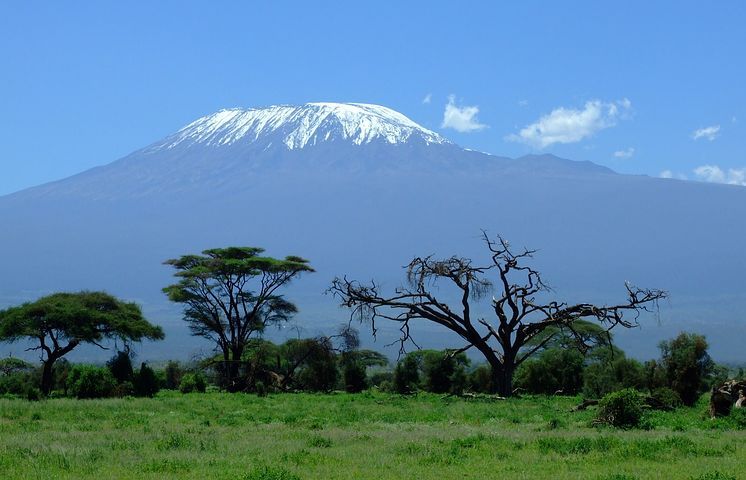
source: pixabay
Africa is home to several beautiful mountains, including:
Mount Kilimanjaro - Located in Tanzania, this iconic mountain is the highest peak on the African continent and attracts thousands of visitors each year.
Atlas Mountains - This mountain stretches across Morocco, Algeria, and Tunisia, and is known for its scenic landscapes and cultural significance.
Mount Kenya - Located in central Kenya, this mountain is the second-highest peak in Africa and offers a range of hiking and climbing opportunities.
Rwenzori Mountains - Also known as the "Mountains of the Moon,". This mountain is located on the border of Uganda and the Democratic Republic of Congo, and is known for its dramatic peaks and diverse wildlife.
Drakensberg Mountains - Located in South Africa, Lesotho, and Eswatini. This mountain is known for its stunning scenery, including high cliffs and waterfalls.
These are just a few examples of the many beautiful and significant mountains in Africa, which offer visitors the opportunity to explore some of the continent's most spectacular natural landscapes.
♥️♥️♥️♥️♥️♥️♥️♥️♥️♥️♥️♥️♥️
I'm enjoying this ride...... What's about you??🤩
Some Major Rivers and lakes in Africa
Here are some major rivers and lakes in found in Africa:
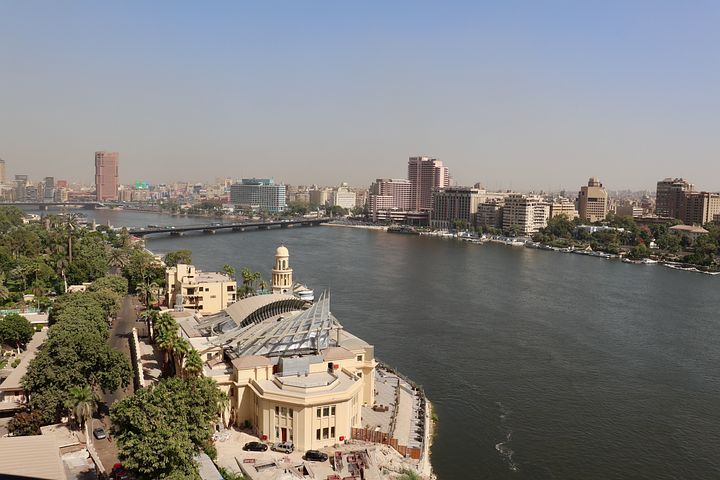
source: pixabay
Nile River: The Nile is the longest river in the world, stretching over 6,650 km (4,130 miles) through 11 countries in Africa. It begins in Burundi and flows northwards through Uganda, South Sudan, Sudan, and Egypt before emptying into the Mediterranean Sea. The river is a major source of water for the people living along its banks and is an important source of irrigation for agriculture.
Congo River: The Congo River is the second-longest river in Africa and the deepest in the world, with depths of over 220 meters (720 feet). It flows through the Democratic Republic of the Congo and empties into the Atlantic Ocean. The river is an important transportation route for goods and people in Central Africa.
Niger River: The Niger River is the third-longest river in Africa, stretching over 4,180 km (2,600 miles) through West Africa. It begins in Guinea and flows through Mali, Niger, and Nigeria before emptying into the Gulf of Guinea. The river is a major source of water for agriculture and is an important transportation route for goods and people.
Zambezi River: The Zambezi River is the fourth-longest river in Africa, stretching over 2,700 km (1,678 miles) through six countries in Southern Africa. It begins in Zambia and flows through Angola, Namibia, Botswana, Zimbabwe, and Mozambique before reaching into the Indian Ocean. The river is known for its Victoria Falls, one of the Seven Natural Wonders of the World.
Orange River: The Orange River is the longest river in South Africa, stretching over 2,200 km (1,367 miles). It begins in Lesotho and flows through South Africa before reaching the Atlantic Ocean. The river is an important source of water for agriculture and is also used for hydropower generation.
As for major lakes in Africa:
Lake Victoria: Lake Victoria is the largest lake in Africa and the second-largest freshwater lake in the world, after Lake Superior in North America. It is shared by three East African countries: Kenya, Tanzania, and Uganda. The lake is an important source of water for the people living around it and is home to numerous species of fish, including the Nile perch.
Lake Tanganyika: Lake Tanganyika is the second-deepest lake in the world, with depths of over 1,400 meters (4,600 feet). It is shared by four countries in East and Central Africa: Tanzania, Congo, Burundi, and Zambia. The lake is an important source of fish for the people living around it, and it is also home to a number of endemic fish species.
Lake Malawi: Lake Malawi is the ninth-largest lake in the world and is located in Malawi, Mozambique, and Tanzania. It is an important source of water for the people living around it and is also known for its diverse population of fish, including the colorful cichlids.
Lake Chad: Lake Chad is a shallow lake located in the Sahel region of Africa, shared by Chad, Cameroon, Nigeria, and Niger. It has been shrinking due to drought and overuse, leading to environmental and humanitarian crises in the region.
Lake Nasser: Lake Nasser is a man-made lake located in Egypt and Sudan, formed by the construction of the Aswan High Dam on the Nile River. It is one of the largest reservoirs in the world and provides water for agriculture and hydroelectric power generation.
Struggles in African continent
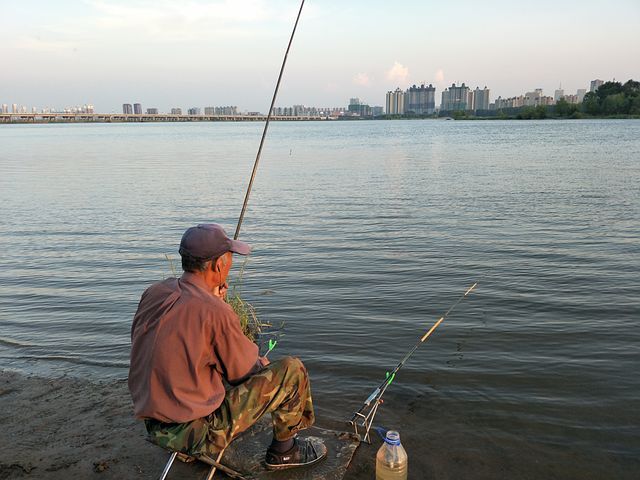
source: pixabay
The African continent has faced various struggles throughout history and continues to face some of these struggles today. Some of these struggles include:
Colonialism: Many African countries were colonized by European powers in the 19th and 20th centuries, resulting in the exploitation of their resources and people. This legacy of colonialism has had long-lasting effects on the continent, including political instability, economic inequality, and social divisions.
Poverty: Despite the abundance of natural resources on the continent, poverty remains a significant issue in many African countries. High levels of unemployment, low wages, and inadequate access to education and healthcare are among the factors contributing to poverty.
Conflicts: Many African countries have experienced violent conflicts, including civil wars and ethnic conflicts. These conflicts have led to displacement of people, destruction of infrastructure, and loss of life.
Disease: The African continent has been hit hard by various infectious diseases, including HIV/AIDS, malaria, and Ebola. These diseases have had a devastating impact on communities, leading to high rates of illness and death.
Climate change: The effects of climate change, such as droughts, floods, and other extreme weather events, are felt strongly in many African countries. These events can have a significant impact on food security, water availability, and livelihoods, particularly for those in rural areas.
Overall, these struggles have had a significant impact on the continent, and many African countries continue to work to overcome these challenges in order to achieve greater stability and prosperity for their(our) people.
This is what I always ask myself, What does the future have for Africans?
And this is what I think👇👇👇
If Africans unite, they can potentially achieve greater economic, political, and social power both within Africa and on the global stage. This could lead to increased trade and investment within the continent, as well as increased cooperation on issues such as security, infrastructure development, and environmental protection.
Additionally, a united Africa may be better able to negotiate favorable terms with other regions and countries in the world. However, achieving unity is a complex and difficult task that would require addressing a range of historical, political, and cultural differences between African nations.
I would rather stop here than continue as the African continent has lots of things to talk about, but I'm happy I've been able to share these little info about my country. I am Charles Rufus, a proud Nigerian💚
A PROUD AFRICAN
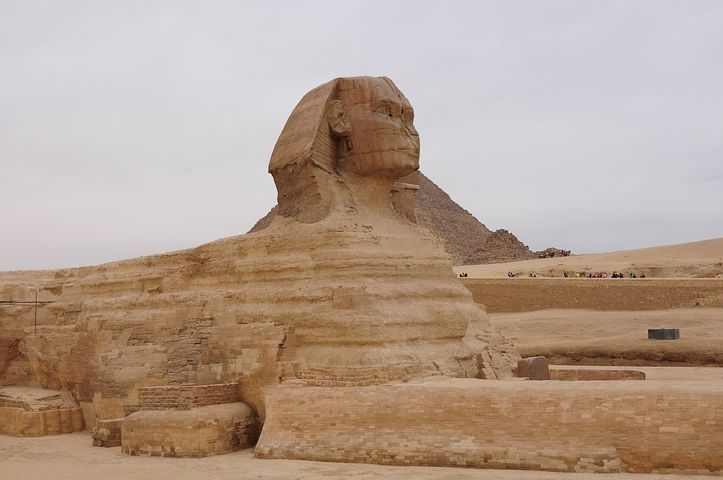
Hi, @me-and-blurt,
Thank you for your contribution to the Blurt ecosystem.
Your post was picked for curation by @onchain-curator.
Please consider voting for our Upkeep Proposal by Symbionts.